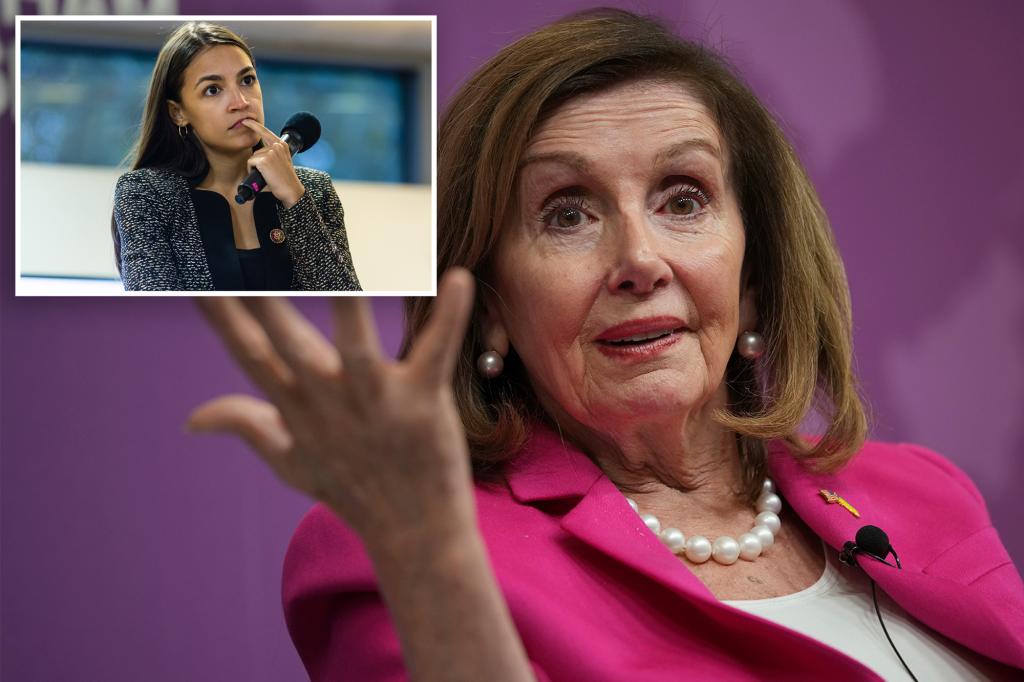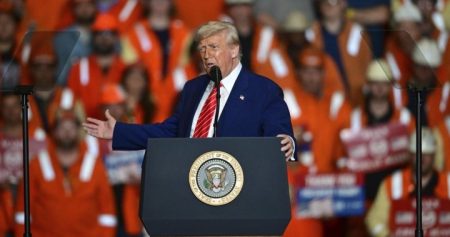The Intricate Dance of Power: Pelosi’s Maneuvering Against Ocasio-Cortez’s Oversight Ambitions
The political landscape within the Democratic Party is witnessing a fascinating power struggle as former House Speaker Nancy Pelosi actively works to undermine Representative Alexandria Ocasio-Cortez’s aspirations to become the ranking member of the House Oversight Committee. This high-stakes contest pits the seasoned political veteran against the rising progressive star, highlighting the generational and ideological divides within the party. Pelosi’s behind-the-scenes maneuvering reveals the intricate web of influence and the enduring power of established figures in shaping the future of the Democratic caucus.
Pelosi, a figure synonymous with Democratic leadership for decades, has thrown her weight behind Representative Gerry Connolly, a more moderate Democrat from Virginia. She has reportedly engaged in a concerted effort, making calls and leveraging her considerable influence to sway fellow Democrats towards Connolly. This direct intervention underscores the significance of this particular committee assignment, especially in the context of an upcoming Republican presidency. The Oversight Committee will play a crucial role in scrutinizing the Trump administration, making the ranking member position a highly coveted and influential one.
Ocasio-Cortez, a prominent figure in the progressive wing of the Democratic Party, represents a stark contrast to Connolly. Her rise to prominence has been meteoric, propelled by her outspoken advocacy for progressive policies and her ability to connect with a younger generation of voters. Her potential appointment as ranking member would symbolize a significant shift in power dynamics within the party, potentially elevating the voices of progressive Democrats on a national stage. This clash between Pelosi and Ocasio-Cortez represents not just a personal rivalry but also a broader struggle for the soul of the Democratic Party.
The unfolding drama surrounding the Oversight Committee assignment reveals the complex interplay of factors at play. While Ocasio-Cortez reportedly enjoys the support of the majority of Democrats on the committee, Pelosi’s intervention demonstrates the weight of her endorsement. Her extensive network and ability to mobilize support could prove decisive in swaying the final outcome. This internal contest also highlights the strategic considerations involved in committee assignments.
Adding another layer of intrigue to the situation is the surprising support Ocasio-Cortez has received from the Republican chair of the Oversight Committee, James Comer. Comer’s praise for Ocasio-Cortez, while acknowledging their policy differences, suggests a pragmatic approach to the selection process. His preference for Ocasio-Cortez over the current ranking member, Jamie Raskin, indicates a desire for a more combative and engaging counterpart. This unexpected alliance could further complicate the dynamics of the race and potentially influence the decisions of Democratic lawmakers.
The outcome of this contest will have significant implications for the Democratic Party moving forward. A victory for Ocasio-Cortez would signal a growing influence of the progressive wing and potentially usher in a new era of assertive oversight of the executive branch. Conversely, a win for Connolly would reaffirm the enduring power of established figures like Pelosi and maintain a more moderate course for the party. This internal struggle reflects the ongoing debate within the Democratic Party about its future direction and its approach to governing.
The behind-the-scenes maneuvering, public endorsements, and unexpected alliances surrounding the House Oversight Committee assignment highlight the intricate dance of power within the Democratic Party. This contest between Pelosi and Ocasio-Cortez represents more than just a personal rivalry; it is a microcosm of the larger ideological and generational shifts occurring within the party. The outcome of this power struggle will have far-reaching consequences, shaping the future of the Democratic Party and its ability to effectively challenge the incoming Republican administration. The stage is set for a dramatic showdown, with the future of Democratic leadership hanging in the balance.










